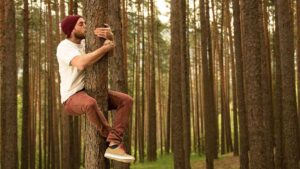Trash into treasure: the companies making useful stuff from the world’s waste

Picture: Getty Images
Globally, the world produced some 2.01 billion tonnes of waste in 2016, with Australia’s contribution to that being about 67 million tonnes.
The World Bank describes it as an issue that requires “urgent action”, otherwise those worldwide waste levels will soar 70 per cent by 2050 to a whopping 3.4 billion tonnes.
It is no wonder consumers have driven demand for a more waste-conscious planet, especially thanks to diminishing levels of resources and the fear of peak oil — a theorised point in time when Earth’s oil reserves peak, and then enter terminal decline.
This is where a small but passionate subset of green ASX battlers come in. There are a handful of small cap stocks attempting to turn waste of a range of varieties into useful products.
But it is tough work. Several green ASX companies have gone into terminal decline themselves, unable to make enough money from green products.
Just this month, Carnegie Clean Energy (ASX:CCE), which was focused on converting waves into energy, called in the administrators, while Protean Energy (ASX:POW), which was also trying to turn waves into energy, sold off that business last year to focus entirely on vanadium mining and battery production.
Solar energy company Greatcell Solar (ASX:GSL) has been suspended since February last year.
Other green companies have disappeared from the ASX altogether — Transpacific Industries, Tox Free Solutions, Novarise Renewable Resources, Go Energy, Energy Developments, Australian Renewable Fuels, Solverdi Worldwide, Enerji, Pacific Environment, Carbon Conscious, Soil Sub Technologies, Green Invest and a stack of geothermal plays are just some of the names to have been removed from the ASX in recent years.
That leaves about eight listed companies trying to commercialise technologies that either turn waste into useful products or recover metals from mining waste, with a further few engaged in water purification.
Douglas Rathbone is chairman of Leaf Resources (ASX:LER), which has a proprietary technology called Glycell that makes sustainable products from plant biomass, such as producing industrial sugars from wasted banana leaves. He says there isn’t much in the way of competition for his company, outlining the challenges inherent in being a green company.
“Everybody wants to know if products are green, whether it has been produced from recycled waste, is not petroleum based,” he tells Stockhead, “but if the product costs more than the traditional alternatives then that can be a bit of a problem.”
“You’ve got to manage the risks of being a green company carefully.”
Fortunately he says Leaf can produce products at least at the cost of petroleum-based manufacturers.
“We feel very confident that everything we have done to date has shown that we are able to produce products of sufficient quality at a commercial level. Our technology is robust enough to deliver on that basis.”
So robust, in fact, that Leaf last year agreed to buy 100,000 tonnes of palm tree fibre per year to make materials for bioplastics as it sets up a biorefinery in Malaysia.
Mr Rathbone says Petronas, the large Malaysian oil and gas company, wants a green chemistry arm but prices for green chemistry products have to become fully competitive in the marketplace.
Meanwhile, he says, Leaf will go about turning biomass waste in Malaysia — much of which is burned off, causing community complaints over the smell and smoke — into useful products, as well as undergoing technology tests in Holland ahead of the launch of the Malaysian biorefinery.
- Subscribe to our daily newsletter
- Join our small cap Facebook group
- Follow us on Facebook or Twitter
Papyrus Australia (ASX:PPY) operates in a similar sphere, turning banana tree waste into more useful products such as paper and furniture, as does Integrated Green Energy Solutions (ASX:IGE), which recycles end-of-life plastics bound for landfill into road-ready fuel.
That company is on the precipice of major production, having recently attained an operations permit for a facility in Amsterdam that will produce fuel from end-of-life non-recyclable plastics.
AnaeCo (ASX:ANQ) is another in that category, transforming household waste into a quality organic fertiliser, renewable energy and recyclable plastics, metals and glass, but it has been suspended since August 2017.
On the resources side of things, Lithium Australia (ASX:LIT) collects discarded electronic and battery waste and recovers lithium from them, while Neometals (ASX:NMT) has built a battery recycling plant in Canada.
Clean Teq (ASX:CLQ) also recovers metals from mining waste, as well as providing water purification services — the major business of water stocks Phoslock Environmental Technologies (ASX:PET) and PuriflOH (ASX:PO3), into which a US billionaire tipped nearly $10 million late last year.
| ASX code | Company name | Last price | Market cap |
|---|---|---|---|
| LER | Leaf Resources | 4c | $12.2m |
| PPY | Papyrus Australia | 0.5c | $1.2m |
| IGE | Integrated Green Energy Solutions | 25c | $98.2m |
| ANQ | AnaeCo | 0.3c | $8.1m |
| CLQ | Clean Teq | 29.5c | $220m |
| LIT | Lithium Australia | 8.2c | $38.2m |
| NMT | Neometals | 22.5c | $122m |
| PET | Phoslock Environmental Technologies | 39.5c | $214m |
| PO3 | PuriflOH | $4 | $126m |
UNLOCK INSIGHTS
Discover the untold stories of emerging ASX stocks.
Daily news and expert analysis, it's free to subscribe.
By proceeding, you confirm you understand that we handle personal information in accordance with our Privacy Policy.








